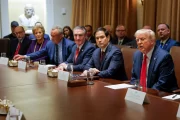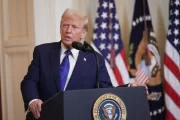In recent years, Mexico has positioned itself as a key destination for global manufacturing. For many years international companies seeking to reduce costs, bring their operations closer to strategic markets or expand abroad, have found the maquila model in Mexico an attractive option.
The maquila model offers significant tax advantages, allowing companies to reduce operating costs while maintaining high production standards. However, it is crucial to understand current regulations and select the right operating scheme to take full advantage of these benefits.
Maquiladoras in Mexico
There are 6,500 companies in the maquiladora and manufacturing export industry (IMMEX) that play a fundamental role in the Mexican economy, with the following contribution in 2024:

Source: Sector manufacturero: participación en PIB México 2024, INDEX Consejo Nacional de la Industria Maquiladora y Manufacturera de Exportación 2024
Main maquila models in Mexico
Companies seeking to establish operations in Mexico under the maquila model may choose to operate under different structures, among them:
- Maquila Model: Allows the temporary importation of inputs and components without paying some applicable taxes, as long as that the finished products are exported and that they count with the authorization of the applicable programs (Maquiladora and Export Services Industry Program (IMMEX Program) and VAT and IEPS Certification) Maquiladoras operating under the IMMEX Program, can carry out operations in Mexico without being considered as a permanent establishment of the resident foreign company. In order for this special treatment to apply they must import the materials under this program and additionally comply with the several requirements, including among others:
- Ownership of machinery and equipment: The owner of the machinery and equipment used in the transformation process is the foreign company and must not have been previously owned any related party in Mexico
- Income from the maquila operation: The totality of the Maquiladora Companies’ income must derive from their maquila operation. The only income allowed from related activities, for example, selling of scrap, must not exceed 10% of the total income generated by the maquila.
- Double Taxation Avoidance Treaty: Mexico must have a double taxation avoidance treaty in force with the country from which the foreign company belongs, too.
- Toll Manufacturer Model: Under this model, the Mexican company receives materials from abroad on consignment, which then transforms them into the finished goods, and returns the finished goods to the foreigner, without owning the inputs.
Under this model, the Mexican company acts solely as a supplier of manufacturing services to its foreign customers, and the machinery and equipment belong to the Mexican company.
- Shelter Model: Enables a company to provide services to multiple foreign companies and facilitate their operation in Mexico, reducing time, costs and liabilities. Unlike the Maquila Model, this framework exempts the foreign company from establishing a legal entity in Mexico, and therefore a permanent establishment is not created in Mexico.
Taxation of Maquiladoras
A maquila company can calculate their taxable income based on the Safe Harbor method. In which tax profits equals the greatest amount equivalent to one of the following percentages:
- 9% of the value of the assets
- 5% of the amount of ordinary costs and expenses of their operation.
Challenges of the Maquila Model in Mexico
Despite its many advantages, the maquila in Mexico faces several challenges, among them:
- Complex and strict regulation: Failure to comply with tax, foreign trade and operational requirements can result in penalties and loss of benefits. Companies must count with an inventory control software (Annex 24) to control temporary imports, and which can involve significant time investment and administrative burden.
- Compliance strategies: Specialized advice is key to ensure that the operation complies with Mexican laws and international treaties.
- Political U.S Landscape: President Trump policies on tariffs, by imposing duties to mexican goods, can impact the maquiladora industry in several aspects including the closing of plants in Mexico.
The maquila model in Mexico is an excellent option for companies seeking to reduce costs and optimize their production within the nearshoring framework. However, its correct implementation is key to avoiding risks and ensuring regulatory compliance.
Companies interested in this model should analyze the different operating structures, and consider the support of experts such as Mexcentrix who give specialized advice to maximize the opportunities that Mexico offers in the manufacturing industry. Contact us!



